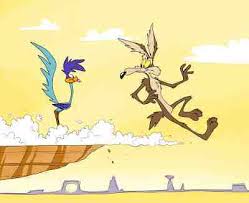(This post first appeared on Fortune.com here)
Albert Einstein once said: “A person who never made a mistake never tried anything new.”
However, in my view, there are good mistakes and bad mistakes. Good mistakes can be choices that seem wrong initially, but in fact lead to new innovations or lessons learned.
Being a big fan of trying new things, I seem to constantly be making what others initially view as mistakes:
- In 2001, in the wake of the dot-com bust, I left Wall Street to join an early stage, engineering-centric startup, Andiamo Systems. I walked in with no tech or coding experience. Some thought I was in over my head, but I was able to create a bigger customer focus at the firm; three years later, I was running the product line, and we sold the company to Cisco for almost $2 billion.
- When I ran monetization at Skype, I faced enormous pressure from the engineering department to keep the product free. However, I believed we needed to build a sustainable business — not just a product. So I found a unique B2B model with brands and content providers that kept things free for users, but created a new $100 million run rate business in 18 months.
- Two years ago, I co-founded Centerview Capital, a new tech growth equity firm, even though many in the industry thought it impossible given the founding team’s backgrounds as technology executives versus investors. However, we differentiated by leveraging our operating experience to help companies grow faster, and are now actively investing our fund to help entrepreneurs build their businesses today.
I also made real mistakes that ended badly, but from which I learned something important. The biggest was not asking for more help in the early part of my career. I tend to have a contrarian view, but this tendency towards defiance also made me reluctant to seek the advice from those around me.
For example, it took me a long time to learn the technology of my first startup, given my background. I didn’t want to admit how little I knew fearing it would have made me look even more inexperienced. I tried to learn on my own, but this was overwhelming. It was only when I found a friendly engineer, who was equally inexperienced in financial modeling and accounting, that I was able to scale quickly.We taught and learned from each other. Also, I started reaching out to more people.
So when we started our investment firm, I actively went to my VC network and asked for advice. Many were surprised because it’s a competitive business with big egos. But I was humble and sought to find win-win propositions for them as well. A majority actually ended up giving me concrete help – one even introduced me to LPs who could invest in us!
I also learned to seek help from many other sources:
- My bosses. Bosses are great sources of wisdom and advice.Good bosses will see this as a sign of maturity and self-awareness versus a sign of weakness. If you are the CEO, try reaching out to Board members or other CEOs in your network.
- My team. Hiring the right team is essential not just for doing their job well, but for giving you knowledge and advice. Don’t be afraid to hire people more experienced or just plain smarter than you. It will help you scale in ways you never imagined.
- My peers. It’s a competitive world and we often feel like we are benchmarked against our peers. But things are not always black and white and our careers are long. Find allies within or outside your firm that can turn into fruitful partnerships over time.
As an investor, I see many CEOs struggle with this leadership challenge. My job is to help them directly or connect them with the right people and information to assist. And, while, of course, you must ultimately rely on your own good judgment and not heed all advice, the biggest mistake would be in not asking for help at all.
